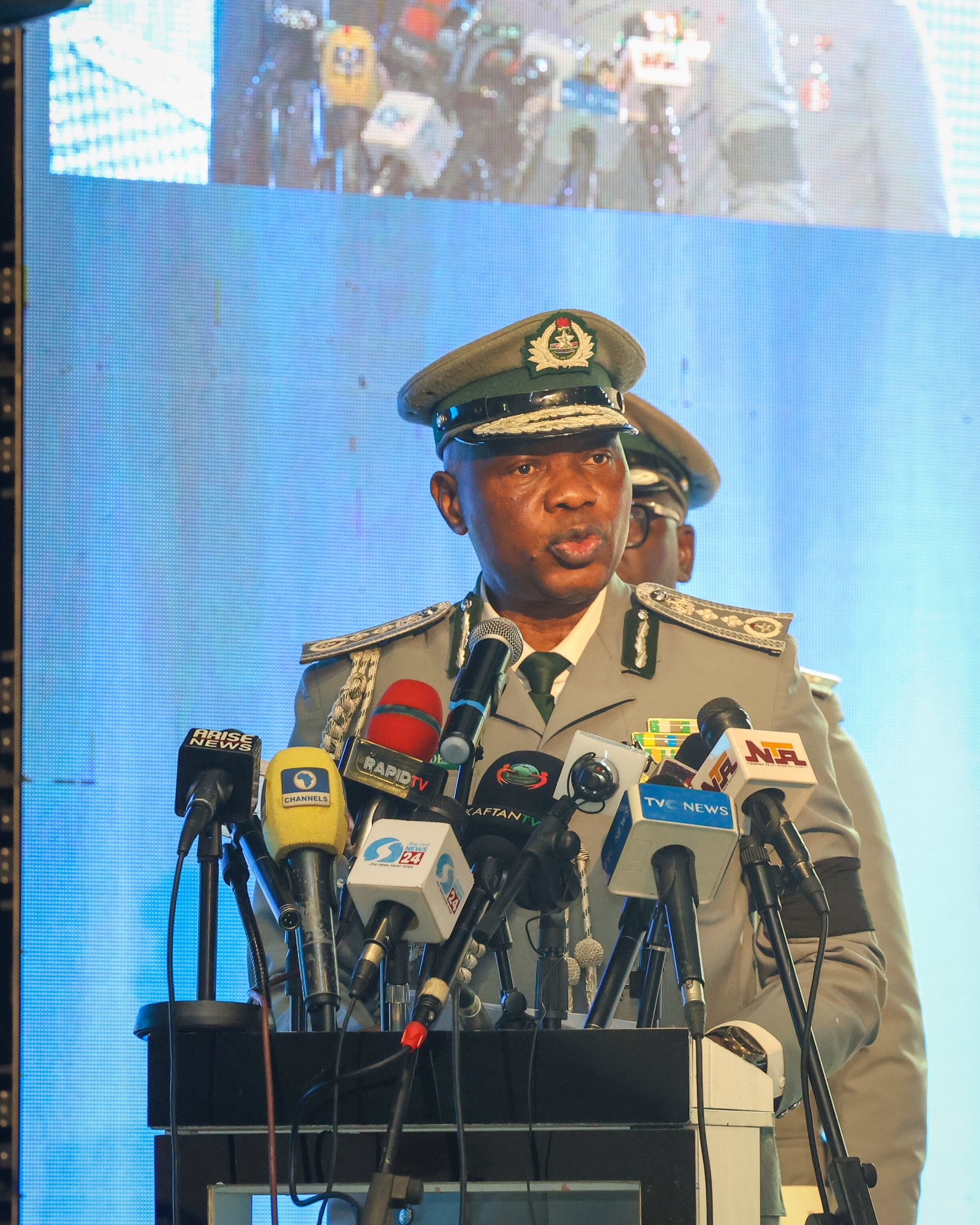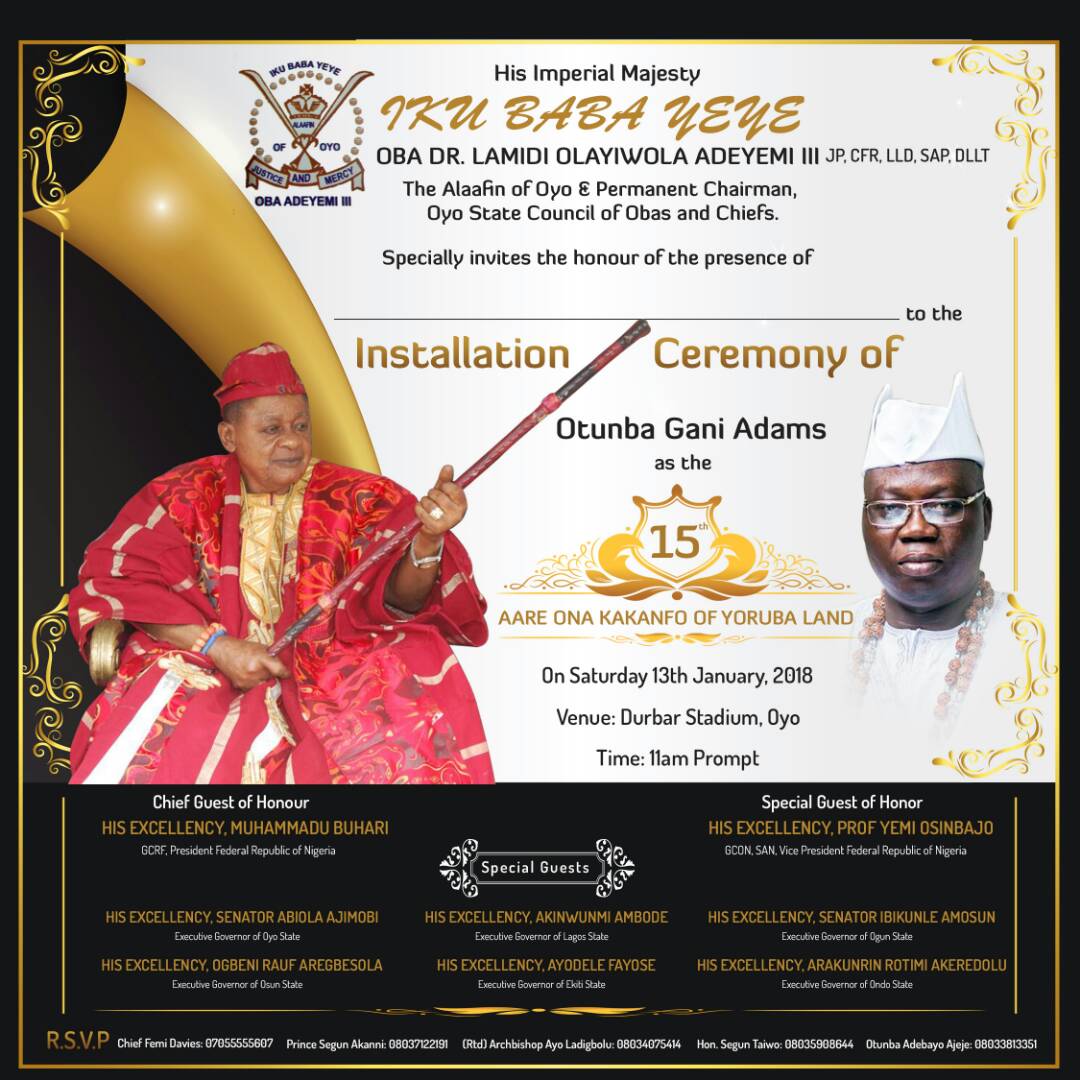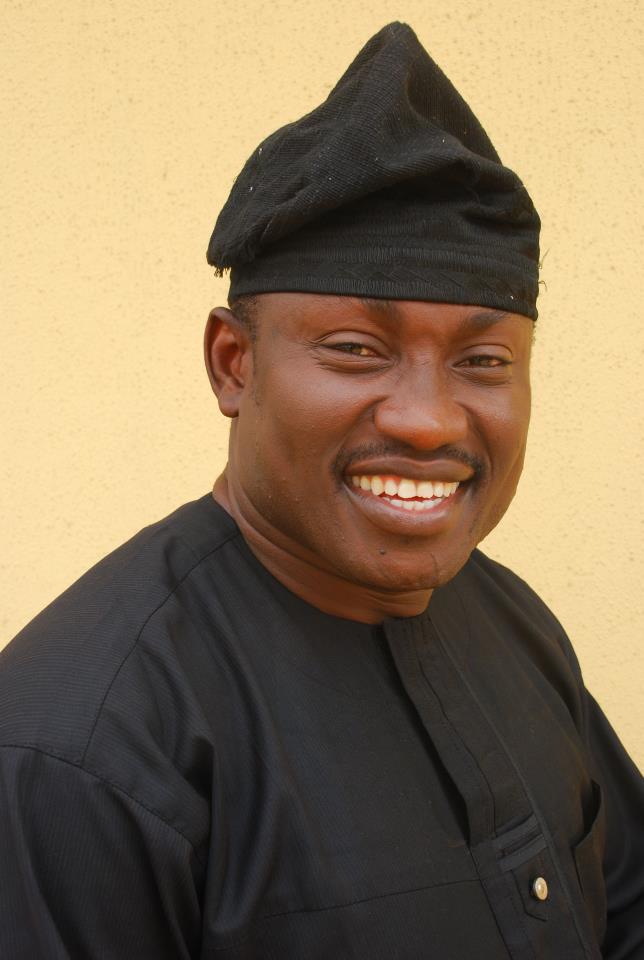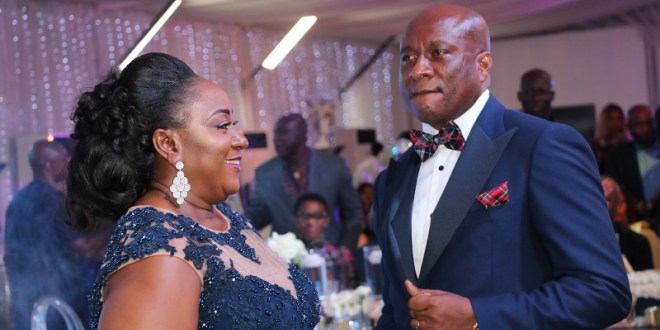Opinion
Our Courts are too Exposed and Insecure
Published
10 months agoon

By: Dr kayode OLAGUNJU, mni
I am not a regular visitor to the court. No, understandably, as I am not a lawyer and I have no criminal records and have no personal issues necessitating my being at the court, either as a plaintiff or witness. My memories of courts dated to the late ninety eighties as one of the pioneers of the Federal Road Safety Corps. We were made to prosecute some “stubborn” traffic offenders that drove dangerously or attacked our men. Then, we had very few lawyers in the system. Not a single one available in our command then. My first appearance as a witness was disappointing. I had appeared believing we had no issue with what we considered a straight case. We had arrested a lawyer on the Benin-Asaba road, for dangerous overtaking of another vehicle, approaching a hill top, also on a bend. I remember it was at Okhuae hill. The road was not dualized then. As a single carriageway and very narrow, dangerous overtaking could attract fatal consequences. In fact, in one particular case, at Issele-Uku, on the same road around the period, the families had to bring caskets to pack the mingled bodies of casualties when the two vehicles involved were completely wrecked and bodies mixed with metal scraps. They came with a priest to pray for the souls of the departed and decided immediate burials. We recorded the scenes and the video formed parts of our public enlightenment materials to shock road users and deter them from engaging in traffic infractions. That memory lingers.
The booked lawyer had no driver licence and vehicle papers, hence we had to impound his vehicle. He refused to pay his fines. He did not waive his right to court trial by conveniently paying his fines if he believed he was guilty. So we had to prosecute him. In fact, it was our very first case in Benin Zone then comprising of the then Bendel State (now Edo and Delta states), Ondo (now Ondo and Ekiti states) and Enugu State (now Enugu and Anambra states). I was like the face of the Corps in the Zone as the Head of Public Enlightenment Office and Spokesman. I had a weekly program on the state television where I educated the publics on road safety. I was a young officer, bubbling with confidence. However, that confidence departed me that my first day in the court.
We had series of rehearsals with our then head of operations Oga Fawole as the prosecutor under the guidance of our cerebral Zonal Commander, Engr. Adegboyega Coker. Then came the day. I was put in the witness box, lacking confidence but determined to say only the truth and nothing but the truth in line with the oath I had just taken. We did not even put the non possession of driver licence and vehicle documents on the charge sheet. Honestly, I can’t remember what led to the omission. We had only one count of dangerous overtaking attracting two hundred naira fines or maximum six months imprisonment or both as may be determined by the Magistrate, as prescribed by the Federal Road Safety Commission Establishment Decree 45 of 1988.
The lawyer surprisingly did not argue on the overtaking but that he was arrested not on a federal highway as restricted by our decree. I had gained a bit of confidence and shouted that but everybody knew that Benin -Asaba was a federal highway. I was cautioned by the Magistrate. The man claimed he was arrested on a side road and that even there was nothing to prove that the Benin -Asaba road was a federal road. I became annoyed and really angered. I shouted again, “which side road” to which the Magistrate gave me a last warning. Then the Magistrate ruled that we could not establish that the offender was arrested on a federal highway and directed unconditional release of the vehicle. That was a technical knock out. Haaaaa, haba ! I was so disappointed as I felt the Magistrate must have known the lawyer or he just decided the case like that because they were both in legal profession. My hate for the courts was cultivated immediately. I did not want to know whether we handled the case professionally or not or if lawyers serving as prosecutors would have known and act better. I just felt the Magistrate just told the whole world he saw red cloth when it was obvious we waived white, which was quite obvious and easy to be seen by all. I now understand why people spend years to become lawyers. I really hated the Courts. That case was part of the reasons, apart from high incidences of crashes on the state roads, messing up our efforts on Federal roads, that the FRSC sought for the amendment of decree 45 to expressly permit the Corps to cover all public roads then. That was granted in Decree 35 of 1992. When the FRSC and the states designed the mobile court system where in many cases, the magistrates practically witnessed the infraction, I became more comfortable. However, since that day in the late eighties, until about three months ago, I did not enter any court room again. I only watched them doing their things on television.
In the last 3 months I had been at the FCT High Courts about four times to witness the court processes involving a mentor. I never felt comfortable each time I came to the court. It is always a case of free entry and departure and that you could bring in anything, especially concealed in bags. Unlike, in cases of some high profile individuals, as witnessed on television, where roads are cordoned off, with high presence of security operatives, fully armed and in fearful security gears, quizzing and searching everyone and everywhere, if you like add everything, it is a porous and insecure situation on regular days.
The only policeman in the court is the Judge orderly with just one pistol. He serves more as a file carrier than providing security. Sometimes, you see two or three officers of the Correctional services lightly armed escorting some accused from prisons. They have their eyes only on their principals. You sit down with someone you don’t know with a bag under your seat that you are not sure of the content. What if he has explosives in the bag that he put under you? You don’t know his mission. You don’t know what he is thinking. In front of you are scores of lawyers including some senior advocates with their wigs backing people they don’t know and not aware of the risks they bear.
The Judge is there sitting on a raised platform taking notes in long hand asking the witnesses to repeat the last statement or spell a name or word. He keeps repeating, slow down I am writing. I am not a computer. Yes, why not do it with computers or speech recorder which can immediately transcribe the speeches. Yes, tonation or dialects could affect transcribing, but editing could help sort out the problem later. You can imagine the time that goes into the judge putting down statements with lawyers spending hours to put their facts or whatever across. No wonder cases sometimes take years to determine. I thought we had gone beyond this. In the midst of this, people walk in and out of the courts bringing all sort of things without any screening.
I kept asking, what if someone who had served his term or an accomplice decide to take a revenge on the Judge and come to the court to strike? How will the nation react to the kidnap of a sitting Judge? Is it the orderly who is more interested in funny narrations of the events leading to a plaintiff or witness coming to court that will resist such a spontaneous or sporadic account? What will he be able to do with that his single pistol that may not be in a ready position? The arm may not even be on his body as complacency could have set in, as he had never had such an experience, so he has a positive perception of safety. Does he have adequate ammunition? Even if he does, what are the chances of a person with hand gun confronting assault rifle bearing assailants? What if the attackers decide to wipe out all of us in the court? Nigerians will say “God forbids”. You see, why I don’t ever get comfortable being in such an unsecured environment
I am sure if such unfortunate incident happens, the nation will mourn. There will be a statement from the Villa, condemning the action and directing security agencies to immediately fish out the killers. Government will set up different committees to unravel the causes and offer recommendations to prevent such in the future. Condemnation will be loud from the National Judicial Council, Body of Benchers, Nigeria Bar Association. The National Assembly will hold special sessions while those in charge of security will run helter skelter. There will be shedding of crocodile tears as the families and the nation mourn. After some time, we forget and move on, as a nation. Must we wait until that imagined but possible disasters happen? No.
Is it that there is nothing that can be done to protect our courts? So much can be done, starting with the deployment of technology. Learnt that most of our correctional centers do not have Close-circuit television camera, thus making jail break easy! So how can the CCTV be considered necessary in the courts or of any priority ? No scanners anywhere at the court. Even your vehicles parked in the court premises are at the owners risk. Some of the cars could be ladened with explosives. The “uniformed security men” in the court premises are only there to open gates and ensure you park well the vehicle. Nothing on security screening. No profiling! How can that be? We should be more serious as a nation. Scanners even if it is just hand held, should be at the gate. Simple mirror screening of the vehicles will definitely be of help. The security men should be trained and equipped enough to detect and wade off crimes at that level since we don’t have enough policemen to adequately protect all our courts. The Nigeria Security and Civil Defence Corps comes into mind here.
Devices should also be deployed to record and transcribe court proceedings . That will reduce time spent on taking notes in long hands as well as reduce the time spent in courts. It will enhance justice delivery without delays. There are so many gadgets and devices that could aid security in our courts. The security experts should come up with the road map and implementable agenda on securing our courts. The governments at Federal and State levels should approach the Assemblies to make adequate and proper budget provisions for securing our courts.
I will conclude this piece with a story of one of our oga, now late Dahiru Kano, then a Deputy Corps Marshal told me several years ago. He did not tell me the source and since I have not been able to link the story to any other source, I am ascribing it to this our highly intelligent, funny and charismatic senior officer. Dairu Kano revealed there was a Prime Minister who was visiting Ministries and Departments in his government. He got to the Ministry of Education and they came with all sort of requests. He told his Personal Assistant, to note the requests. He went to the Ministry of Agriculture, some requests again, the Honorable Prime Minister called for noting. He went to about ten other Ministries and he kept telling the PA and officials to note. When he got to the Prison service, they came with long lists of requests and the PM immediately approved all the requests and directed immediate release of funds. The PA and other officials were surprised . When they got back to the office, the PA approached the PM and asked him, “Your Excellency, you asked us to note all the requests from all the Ministries and Departments but getting to Prisons, you promptly approved all the requests. Why this sir?” The PM replied “I already have the formal education I required, I am too old to farm and don’t intend to do any new business and several other engagements, but you see that prison, we can go back there tomorrow morning”. Do I need to add any other thing here apart from calling on those who can make our courts and prisons safer and more comfortable to act now. Nobody knows who could be involved tomorrow. Remember every living person is a potential person living with disability, that is if we are lucky to be alive. We should not wait for any disaster to happen before we respond, then we will be reacting. Dangers may be looming. A stitch in time saves nine. I rest my case.
Dr Kayode OLAGUNJU, mni is a retired Deputy Corps Marshal
DCM Kayode OLAGUNJU, rtd, PhD, FCILT, FCAI, FISPON, mni
Deputy Corps Marshal, rtd
Mobile:08033069090, 08156009090
email:olufigaro2002@yahoo.com
Safer Roads Fuller Lives
You may like
-


Safety on Roads: Gov. Mbah calls for closer synergy among security agencies
-


FRSC CORPS MARSHAL REDEPLOYS DEPUTY CORPS MARSHALS SHEHU ALKALI ZAKI, BISI KAZEEM AND ASSISTANT CORPS MARSHAL JONAS AGWU FOR EFFICIENCY AND GREATER PERFORMANCE
-


DAUDA BIU FELICITATES WITH CHRISTIAN FAITHFULS: REASSURES THE CORPS’ RESOLVE TOWARDS ENTRENCHING SAFETY ON THE HIGHWAYS
-


2023 END OF YEAR SPECIAL PATROL OPERATIONS: FRSC DEPLOYS ENTIRE WORKFORCE, ADEQUATE OPERATIONAL TOOLS (RADAR GUNS, BODY CAMERAS AND OTHERS), ASSURES MOTORISTS OF HITCH FREE VEHICULAR MOVEMENT NATIONWIDE
-


RE: VIO/STATE TRAFFIC MANAGEMENT AGENCIES DO NOT HAVE POWERS TO ARREST OVERLOADED VEHICLES AND OTHER TRAFFIC OFFENDERS, FRSC DISSOCIATES ITSELF FROM COMMENTS BY ITS OPERATIVE
-


NEWLY APPOINTED DEPUTY CORPS MARSHAL, BISI KAZEEM DECORATED WITH HIS NEW RANK BY FRSC CORPS MARSHAL
Opinion
Rejoinder: “I Don’t Know Justice Osiagor from Adam”: Adegboruwa and the Distortion of Truth
Published
1 month agoon
December 12, 2024
By Valentine Idedia
It is regrettable and deeply troubling to read Ebun Adegboruwa SAN’s feeble response titled “I don’t know Justice Osiagor from Adam,” in an attempt to deflect attention and create a diversion through disinformation, all while a court case is ongoing. This has been a hallmark of this simple civil dispute since it began in 2022.
Frankly, no one is concerned about whether Adegboruwa knows Justice Osiagor. He is free to associate with the judge, but that should not interfere with a case of this significance. The real issue is Adegboruwa’s disregard for the judicial process, which has led to unnecessary controversy.
The case centers on Maurice Etim, a minority shareholder and director of several companies within the Edmark Group, and his co-director, Sam Low Ban Chai, a Malaysian businessman under investigation by Interpol for serious criminal offenses, including forgery, fraudulent corporate practices, and money laundering.
Etim claims that his signature was used without his consent for corporate resolutions, financial statements, tax filings, and more. These allegations prompted an official investigation, and the Nigerian Attorney General, in collaboration with Interpol, has uncovered substantial evidence, including over 500 bank accounts opened in Edmark’s name without Etim’s approval.
The focus now should be on Adegboruwa’s behaviour throughout this case. Settlement talks initially occurred but broke down when Etim refused to agree to a condition barring him from pursuing legal action. Since then, Adegboruwa’s legal tactics have taken a concerning turn.
While Adegboruwa can claim not to know Justice Osiagor, his insistence (following his letter to the Chief Judge of the Federal High Court) that it must only be Justice Osiagor that will handle his cases on the Edmark matters is intriguing.
This is despite Justice Osiagor’s earlier decision in a sister case, which favours Adegboruwa, raising serious questions, where Osiagor held that the police should be stopped from investigating Maurice’s complaint of forgery of his signature on a board resolution—a document that is part of Adegboruwa’s defence to the Maurice petition for unfairly prejudicial conduct.
Adegboruwa described Justice Aneke as unfair. He is not satisfied that the matter is before Justice Dipeolu. The distinguished SAN wants the matter returned only to Justice Osiagor.
It appears that it is only Osiagor who can do justice in the legal world of Adegboruwa. Is he saying that all the other justices of the Federal High Court, including the senior Justices in the Lagos Division, are not fit and proper to be judges?
Issues of Judicial Bias
What is even more baffling is the series of petitions, motions, and allegations of bias put up by Justice Osiagor. Osiagor had previously handled a case involving Adegboruwa, creating a potential conflict of interest.
Etim’s counsel requested Osiagor’s recusal from two pending suits, and while Osiagor agreed to recuse himself from one, he refused to do so for the primary petition, where Adegboruwa represented the Respondents.
When Etim’s counsel appealed, Osiagor dismissed the motion for a stay of proceedings and vacated earlier interlocutory orders without formal application. He then appointed a junior auditor, Samuel Ibrahim, against Etim’s request for a more qualified firm.
Later, Osiagor replaced Ibrahim with Ariyibi, who was found to have a close connection to Osiagor’s church—a relationship not disclosed at the time.
Questionable Orders and Interventions
Etim’s counsel opposed the auditor’s actions and filed for intervention, but Justice Osiagor ruled against them. Additionally, Osiagor granted orders restricting Etim’s access to the Edmark Group’s premises in a separate petition, despite objections from Etim’s counsel.
Meanwhile, Adegboruwa filed a new action in the Lagos State High Court for more restraining orders, which were challenged by Etim’s counsel as an abuse of the court process.
To complicate matters further, the police were involved in enforcing these orders, despite questions about their legitimacy. The intervention of the Inspector General of Police was required to halt the unlawful execution.
Etim’s counsel also sought Justice Osiagor’s recusal from the subsidiary petition, which was granted in November 2024.
Public Concern
The public is left wondering: What is the nature of the special relationship between Adegboruwa SAN and Justice Osiagor? Why has Adegboruwa insisted that only Justice Osiagor should preside over this matter?
Justice Osiagor’s emotional outburst in court and his subsequent recusal do little to mask the apparent bias and possible collusion between him and Adegboruwa.
This situation is a clear example of the Tragedy of the Commons, where individuals act solely in their own self-interest, ultimately causing harm to all parties involved. This behaviour reflects a broader problem in Nigeria’s legal system.
Conclusion
Ebun Adegboruwa SAN’s actions in this case are tarnishing his reputation and casting a shadow over the legal profession. His tactics, including judicial intimidation, obstruction of justice, and the abuse of state power, suggest that his earlier image as a human rights advocate may have been a façade for self-serving ambitions.
By manipulating legal processes for personal gain, Adegboruwa risks losing the respect he once commanded and may be remembered not as a defender of justice, but as a legal villain who uses his position to manipulate the law.
Valentine Idedia, Sales and Marketing Specialist and has followed the court proceedings closely. He is also an an avid interest in fighting injustice
Reference: https://www.facebook.com/share/p/1FSpUJ9gQU/
Opinion
PWD: When Negligence Stole a Childhood: A Parent’s Painful Journey
Published
2 months agoon
November 18, 2024
By Oluwaseyi Oluwabiyi
(This article is based on a true story. Names and certain details have been altered to protect the privacy of those involved.)
When Tolu and Ade welcomed their first child, they were filled with hope and excitement. But their joy quickly turned into heartbreak when medical negligence during delivery caused their daughter to develop cerebral palsy. What followed was a six-year journey of sacrifice, frustration, and resilience that forever changed their family.
The experience shook their faith in the Nigerian healthcare system, forcing them to seek treatment abroad and make unimaginable sacrifices to provide their child with the care she needed. Today, they share their story to support others facing similar struggles and call for accountability and systemic change.
A Shattered Dream
Tolu recalls the day her baby was born with a mix of pain and anger. “It was a long labor, something felt off and I kept asking for help, but the doctor dismissed my concerns,” she says. The delay in intervention resulted in oxygen deprivation, and the diagnosis of cerebral palsy came weeks later.
“We didn’t understand what it meant at first,” Ade explains. “But as the weeks turned into months, we realized how drastically our lives were going to change.”
The couple was devastated not just by the diagnosis, but by the knowledge that their child’s condition was preventable. “Knowing that a doctor’s negligence altered her life forever broke something in us,” Tolu admits.

The Search for Better Care
Determined to give their child a fighting chance, Tolu and Ade traveled abroad in search of better medical care, staying there for nearly eight months. The move came with difficult decisions. Ade, a promising professional in his field, had to sacrifice his career to stay back and care for their daughter, while Tolu returned to Nigeria to continue working and support the family financially.
“It was the hardest decision we’ve ever had to make,” Ade shares. “I had to set aside my ambitions and focus entirely on her care. But I knew it was what she needed.”
The separation tested their marriage and their resolve. “Being apart from my family and working in Nigeria while they were abroad was exhausting,” Tolu says. “But we didn’t have a choice. We couldn’t both leave work, and we needed the money to afford her treatments.”
Everyday Challenges
Caring for their daughter was more than a full-time job. She couldn’t walk and had to be carried everywhere. She couldn’t control her bowel movements and had to be fed through a tube inserted into her stomach.
“We hired caregivers because we needed the help, but it came with its own problems,” Ade says. “Some of them were rude and careless, and we had to tread carefully so they wouldn’t leave or maltreat our daughter in our absence. It was exhausting to constantly manage both their behavior and our child’s care.”
The financial burden was overwhelming, but the emotional toll was even heavier. “There were days I couldn’t stop crying,” Tolu confesses. “I felt like I had failed her, even though deep down I knew it wasn’t my fault.”
A Life Too Short
Their daughter lived for six years before complications from her condition led to her passing. “She was our light, even in the darkest moments,” Ade says. “Losing her felt like losing a part of ourselves.”
The grief was compounded by anger at the system that had failed them. “She didn’t have to go through all that suffering,” Tolu says. “We trusted the doctor, and he let us down and to think that he was my gynecologist all through the pregnancy. That’s something I’ll never forget.”
Despite their pain, the couple has found ways to honor their daughter’s memory by sharing their story and supporting others.
What They Want Others to Know
When asked what advice they would give to parents in similar situations, Tolu and Ade share the lessons they learned through their journey:
1. Speak Up Early
“If something feels off, don’t hesitate to speak up and demand better care,” Tolu says. “Don’t let anyone dismiss your concerns.”
2. Find a Support Network
“You can’t do it alone,” Ade adds. “Lean on friends, family, or even support groups. Having someone to talk to makes a difference.”
3. Focus on the Love
“It’s easy to feel overwhelmed by the challenges,” Tolu says. “But don’t lose sight of the love you have for your child. That’s what will keep you going.”
4. Hold the System Accountable
“The healthcare system must do better,” Ade emphasizes. “Doctors need to be trained and retrained, and there should be consequences for negligence.”
The Broader Conversation
Across Nigeria, countless families are grappling with the fallout of preventable medical errors. Their experience highlights the urgent need for reforms in the healthcare system, not just for better practices, but for accountability and support for affected families.
“Her life mattered,” Tolu says. “And if sharing her story can spark change, then her legacy will live on.”
Opinion
Bashir Adewale Adeniyi: adeptly navigating customs complexities with commitment and proficiency
Published
2 months agoon
November 14, 2024


Kindness Defeats Witchcraft: Apostle Suleman’s Cross-Over Lecture at ‘Mercy Night’

Lagos History Comes on Screen as Jide Kosoko Shoots Esugbayi Eleko

Agbado Youths Celebrate Historic Succession, Rally Support for Prince Akintoye as King

FASHIONPRENUER, BRIDGET AGBA’S JOCHLIEU APPAREL SET FOR SECOND SALES BASKET

Pan African Online Film Festival Open Entry for Online voting

ALAFIN OF OYO RELEASES INVITATION CARD FOR INSTALLATION OF OTUNBA GANI ADAMS AS 15TH AARE ONA KAKANFO

Trending News
-

 Uncategorized5 years ago
Uncategorized5 years agoFASHIONPRENUER, BRIDGET AGBA’S JOCHLIEU APPAREL SET FOR SECOND SALES BASKET
-

 Entertainment6 years ago
Entertainment6 years agoPan African Online Film Festival Open Entry for Online voting
-

 Uncategorized7 years ago
Uncategorized7 years agoALAFIN OF OYO RELEASES INVITATION CARD FOR INSTALLATION OF OTUNBA GANI ADAMS AS 15TH AARE ONA KAKANFO
-

 Uncategorized7 years ago
Uncategorized7 years agoTIMI OF EDE’S WIFE, QUEEN ABDUSALAM AISHAT YETUNDE RELEASES BEAUTIFUL PICTURES TO CELEBRATE HER BIRTHDAY
-

 Uncategorized7 years ago
Uncategorized7 years agoPopular Actor Kolade Segun-Okeowo’s Large Heart
-

 Uncategorized7 years ago
Uncategorized7 years agoAIR PEACE BOSS; BARRISTER ALLEN ONYEMA CELEBRATES LOVE
-

 Uncategorized7 years ago
Uncategorized7 years agoNIGER STATE PDP GOVERNORSHIP ASPIRANT, UMAR NASKO, CELEBRATES WEDDING ANNIVERSARY WITH ADORABLE FAMILY PICTURES
-

 Trending News4 years ago
Trending News4 years agoSeyi Vodi Still Waxing Stronger, Takes Fashion Business To Another Level






